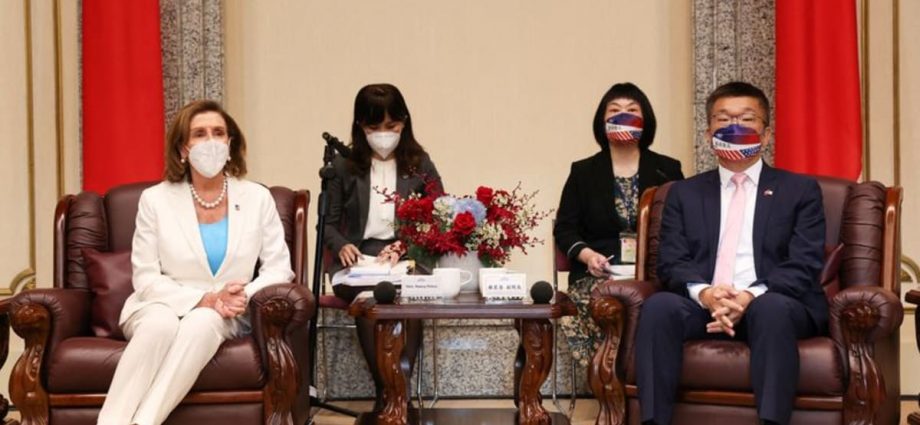
White House national security spokesman John Kirby said on Tuesday after Pelosi’s arrival that the United States “is not going to be intimidated” by China’s threats or bellicose rhetoric and that there is no reason her visit should precipitate a crisis or conflict.
“We will continue to support Taiwan, defend a free and open Indo-Pacific and seek to maintain communication with Beijing,” Kirby told a later White House briefing, adding that the United States “will not engage in sabre-rattling”.
Kirby said China might engage in “economic coercion” toward Taiwan, adding that the impact on American-Chinese relations will depend on Beijing’s actions in the coming days and weeks.
The United States has no official diplomatic relations with Taiwan but is bound by American law to provide it with the means to defend itself. China views visits by US officials to Taiwan as sending an encouraging signal to the pro-independence camp on the island. Taiwan rejects China’s sovereignty claims, saying only the Taiwanese people can decide the island’s future.
Taiwan’s cabinet on Wednesday said the military has increased its alertness level. The island’s defence ministry said 21 Chinese aircraft entered its air defence identification zone on Tuesday, and that China was attempting to threaten key ports and cities with drills in the surrounding waters.
“The so-called drill areas are falling within the busiest international channels in the Indo-Pacific region,” a senior Taiwan official familiar with its security planning told Reuters on Wednesday.
“We can see China’s ambition: to make the Taiwan Strait non-international waters, as well as making the entire area west of the first island chain in the western pacific its sphere of influence,” the person said.
Japan’s Chief Cabinet Secretary Hirokazu Matsuno told a news conference that the government has conveyed concerns over the military operations to China, and reiterated that Japan hopes issues over the Taiwan Strait will be resolved through dialogue.

